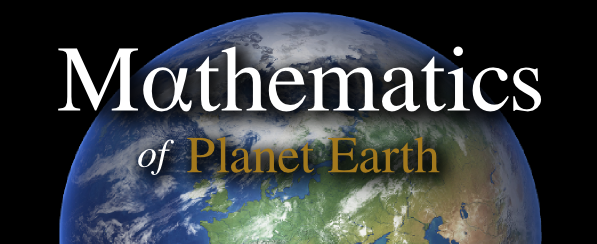When: Wednesday, 18 May 2016
Time: 18:00 to 20:00
Where: Sir Alexander Fleming Building, Room G34 – Imperial College London, South Kensington Campus, London SW7 2AZ, United Kingdom
The Grantham Institute and the Mathematics of Planet Earth Centre for Doctoral Training invite members of the business community to attend a panel discussion at Imperial College London where experts will discuss how mathematics can combat environmental problems, and their impact on society and business.
The panel discussion will be chaired by Imperial’s Professor Sir Brian Hoskins, an esteemed meteorologist and member of the UK Committee on Climate Change. Following the discussion, we are offering you the opportunity to meet our academics and PhD students, and see examples of what our research in climate modelling, uncertainty, data assimilation and computational science can do for you.
Panellists include:
- Prof Alan Thorpe (former Director General, European Centre for Medium-Range Weather Forecasts (ECMWF) and former Chief Executive of the Natural Environment Research Council (NERC))
- Prof Alistair Forbes (Fellow, National Physical Laboratory (NPL) Mathematics and Modelling Group)
- Paul Febvre (Chief Technology Officer, Satellite Applications Catapult)
- Dr Eric van Sebille (Lecturer in Oceanography and Climate Change , Grantham Institute)
- Dr. Rene Aid (Deputy Head EDF R&D OSIRIS, Generation & Market Risk Management Department)
Why does the environment matter?
The unpredictability of the weather is one of the constant facts of life, but lately the weather has become one of the biggest challenges faced by humankind.
Extreme weather events, which may already be happening with increasing regularity worldwide, are now a vivid illustration of the consequences of climate change. With melting ice caps, rising seas, coastal erosion, drought and flooding, Earth’s climate has become a matter of great concern to the public, industry (agriculture, financial sector, insurance), policy makers and academics.
Successfully addressing the challenges of climate change will require enhanced understanding of complex Earth system dynamics. One possible approach to the enhanced understanding we need is via the application of cutting-edge mathematics.
Why are mathematicians interested in weather and climate?
Mathematics grows when it attempts to solve problems that arise outside its borders. For example, Newton developed the calculus in the quest to understand gravitational attraction and the motion of the planets.
Similarly, climate and environment changes provide mathematical scientists with a broad range of challenging research problems, whose solutions could have a large societal and economic impact.
Mathematical modelling offers an effective approach towards the understanding we need of climate change and other planetary issues.
This event is free, but to help us plan for your attendance, please register for the event.






